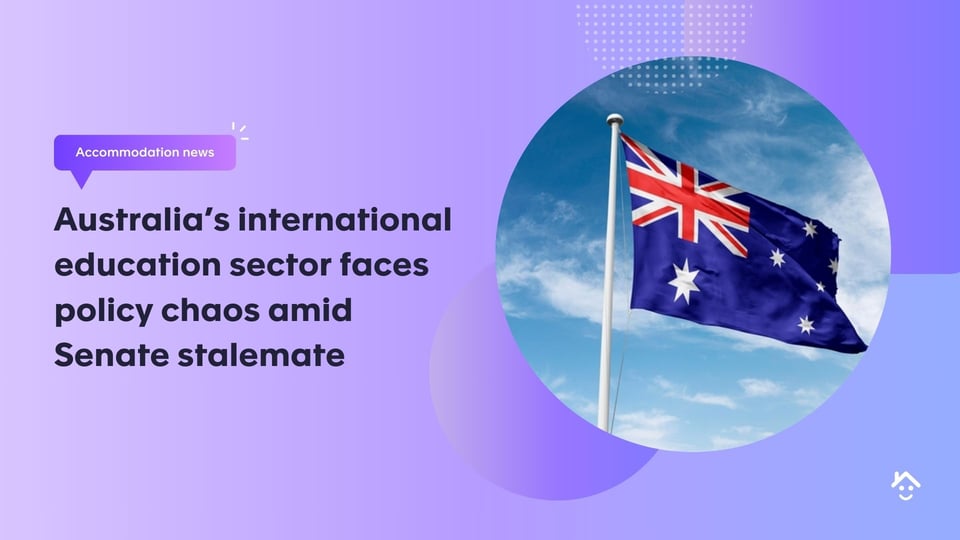Australia’s international education sector faces policy chaos amid Senate stalemate

Australia’s international education sector is bracing for six months of policy chaos as a Senate deadlock increases uncertainty on several fronts.
This turbulence centres on the role of international students in migration, an issue likely to dominate next year’s election.
The opposition’s decision to block the Labor government’s bill to cap overseas enrolments has not only deepened uncertainty but also prolonged visa processing delays tied to the controversial ministerial direction 107 (MD107), which Education Minister Jason Clare has described as a “de facto cap.”
The promises of the new bill
The government’s bill, now stalled, sought to introduce a range of reforms to address integrity issues in the education sector.
These include enhanced regulatory powers, increased transparency requirements, and a stricter “fit and proper” test for registered colleges.
The bill’s explanatory memorandum highlights its intention to “limit collusive and unscrupulous business practices” that have facilitated “organised channels of labour exploitation and human trafficking.”
Additionally, it aimed to monitor the activities of education agents involved in the rampant poaching of university students by cheaper training colleges.
Government Senator Tony Sheldon criticised the opposition for obstructing the bill, warning that it effectively grants a “free pass” to exploitative operators in the sector.
Speaking in parliament, Sheldon emphasised the broad support for the integrity measures revealed during a Senate inquiry he led. Without these measures, the sector remains vulnerable to unscrupulous practices, he argued.
Ironically, the prospect of caps on international enrolments has arguably worsened integrity issues.
Some institutions have reportedly manipulated course structures and start dates to exploit implementation loopholes or seek exemptions.
Larger problems loom for universities
While universities lament the continuation of MD107, the possibility of stricter enrolment caps in the future could present even more significant challenges.
Shadow Education Minister Sarah Henderson has vehemently opposed the government’s proposed caps, labelling them as “secretive, uncertain, and unfair,” particularly for private colleges.
However, she also contends that the caps fail to address broader issues such as Australia’s immigration and housing crises.
Henderson argues that the coalition’s approach would surpass the government’s measures by “getting the migration policy settings right.”
Opposition Leader Peter Dutton echoed this sentiment, stating, “I just don’t think you can make such a bad bill better.”
While Dutton has yet to outline specific policies, he hinted at deeper cuts to international student numbers, citing the need to prioritise housing availability for Australians.
Australian National University policy analyst Andrew Norton has speculated that the opposition’s approach could impose a 35% ceiling on the international share of students at each institution, aligning with the cap advocated by Deakin University.
Norton also noted that the coalition might consider restricting visas for students’ partners and children, further limiting migration opportunities.
Calls for transparency
Education Minister Jason Clare has called on the opposition to reveal its plans.
“It’s time for the Liberal Party to cough up and provide some details on what they’re going to do if they win the next election,” Clare told reporters.
Migration expert Abul Rizvi welcomed the blocking of the caps proposal but cautioned that this should not be mistaken for a boon to the industry.
“If the industry thinks this means a higher level of student visa grants, it’s kidding itself,” Rizvi posted on X. “[Mr] Dutton’s net migration target requires a much bigger cut to students than the caps were ever going to deliver.”
The opposition’s stance leaves the sector in limbo, with no clear resolution in sight. The bill, initially slated for Senate debate on November 19, was conspicuously absent from the subsequent legislative program, further delaying any potential progress.
If you are interested in letting your property to students, accommodationforstudents.com is the no.1 student accommodation service in the UK.



